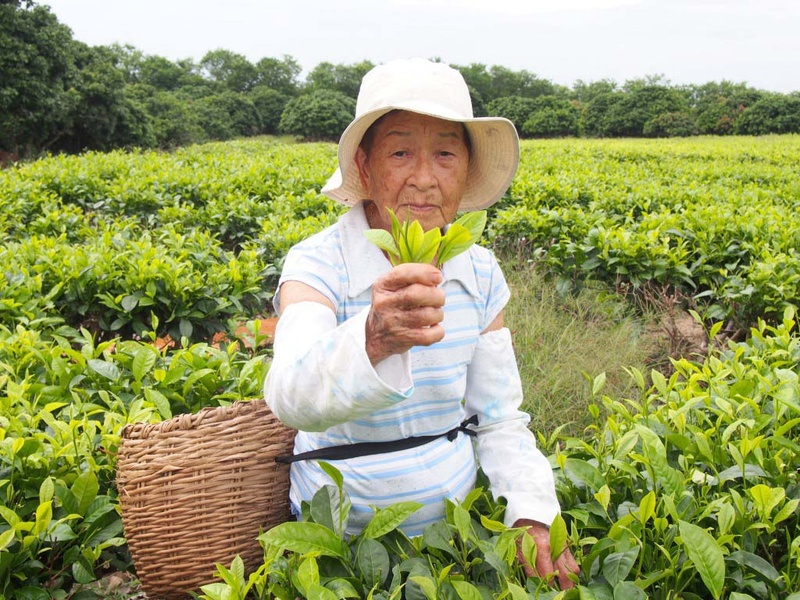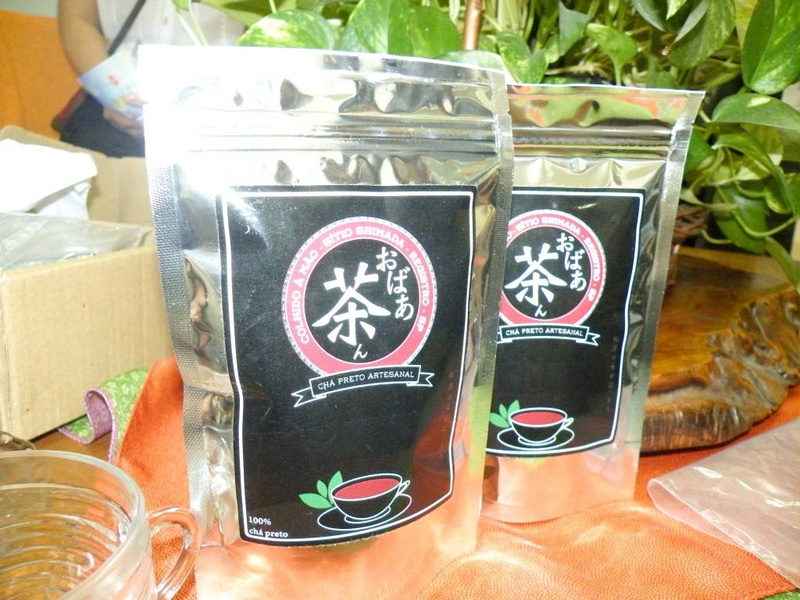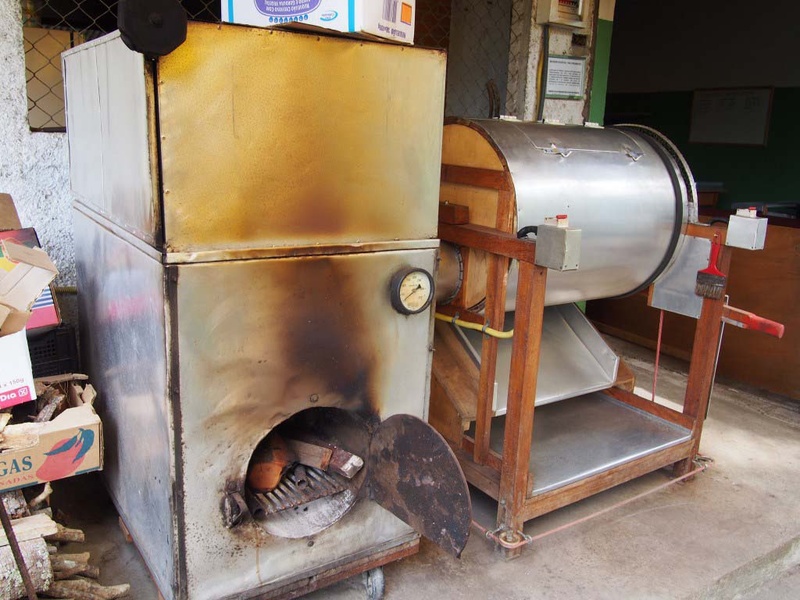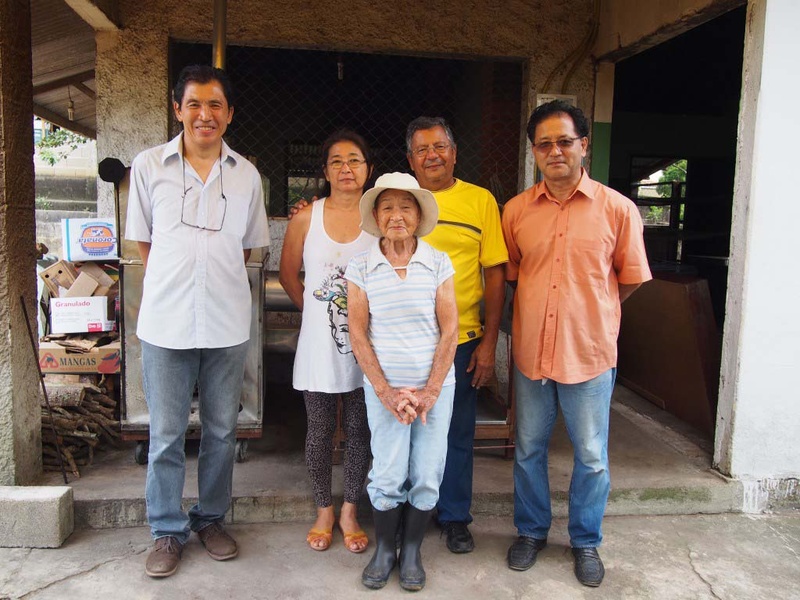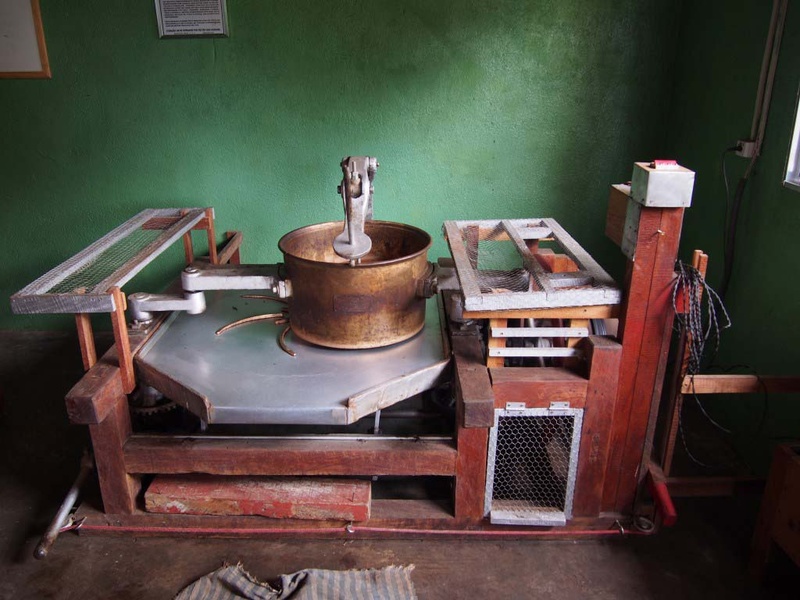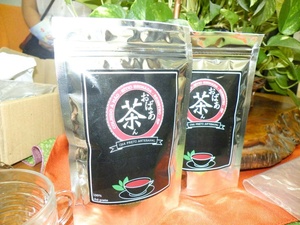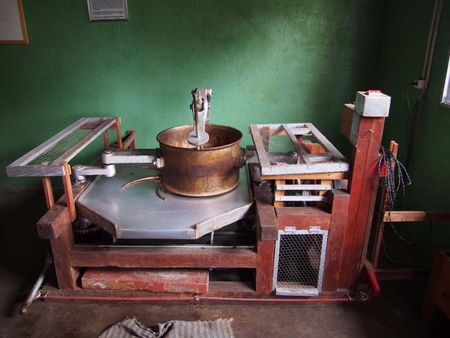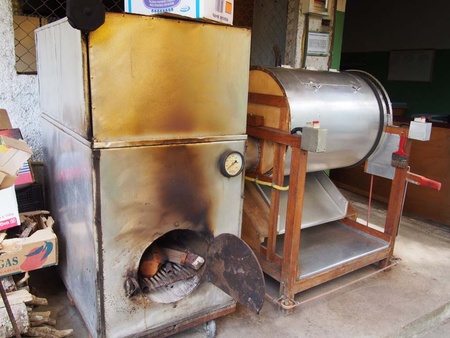Registro, São Paulo, once thrived as the "tea capital," but because the tea industry was dependent on exports, it lost its international competitiveness due to the high value of the real exchange rate over the past 20 years, and has been in steady decline. Shimada Ume Elisabeth (real name Umeko, 88, second generation) stepped up to protect the tea industry, which she has been involved in since she was five years old. Feeling heartbroken by the deteriorating tea fields, she resolved to set up a second tea factory after "Amanaya" in a corner of her home, and in November last year launched a new brand, "Obaachan." A new challenge began with her children, touched by their mother's passion to "make the most of the tea fields somehow."
* * * * *
In a corner of Shichio Shimada, surrounded by the Atlantic Forest, tea fields stretch as far as the eye can see. 150,000 stalks were planted 50 years ago by Ume and his sons. Every morning at 6am, Ume-san goes to the fields with his dog Bob, carrying a basket on his back, and carefully picks the tea leaves while selecting them.
"When tea fails, everyone plants pupunhas or bananas, but I can't leave the tea fields. I'd be sad to lose Registro tea." Ume-san, who expresses his love for black tea, says, "I think the reason the tea industry failed is because when it sold, it became about quantity over quality." That's why he thinks there's hope if he produces products that boast quality.
If they were picked by machine, tough leaves, new shoots, and even insects would get mixed in, so they insist on hand-picking, even though it takes time, and they hardly use any pesticides. They knead the whole thing and dry it thoroughly to make "Obaa-chan." After much trial and error, they completed the product in November of last year.
In Brazil, where coffee culture is mainstream and domestic black tea is not well known, it is not easy to get sales on track. However, the Shimada family is supported by tea advisor Imazato Disney, who is involved in the development and sales of Amaya tea, and is pinning his hopes on the success of the new brand.
His father, Katsumi Kanno's tea fields were much larger than they are now, and he also had a factory. However, along with the more than 40 tea factories that once existed in the area, this one also stopped operating, and only this tea field remains.
In 2011, when shipments of tea leaves for export that had been supplied to Amaya finally ceased, Ume recalls, "When I was told that it was all over, I gave the tea fields an abrasso (hug) and cried."
Just as he was thinking about how he could do something about the declining tea fields, he met Makiuchi Toshio, a tea lover and engineer with extensive knowledge of tea-making machinery, who helped him revive his broken rolling machine (a device that rolls the leaves to promote fermentation).
They invested a total of about 10,000 reals and purchased a dryer. Just six months after they had decided to do so, the small factory was completed. The production capacity is 200 kilos per month. Ume-san and her daughter, Eiko Terezinha, make black tea, and her son-in-law, Leo Aurelino, runs the business in the city of São Paulo.
The quality of the tea, which is made with great care and effort, is guaranteed, and Imazato (53, second generation), recommends it, saying, "It has a special flavor and aroma that can't be achieved by machine picking. It's a taste that you'll never get tired of, no matter how many times you drink it."
* * * * *
It is currently on sale at "ÓTICA ACLIMAÇÃO" (Av. Aclimação, 112, Tel: 11-3207-4104) in the Aclimação district of São Paulo. The price is 15 reais per 100 grams. Ume's daughter, Hamasaki Bernadeti, also speaks Japanese.
It can also be purchased online from Infusorina ( www.infusorina.com.br ) (13.9 reais per 100 grams). Although it is not sold in stores, it can also be enjoyed at the Tea Kattle coffee shop in the Shakara Santo Antonio district (address: Rua Alexandre Dumas, 1049, phone: 11-5523-9615, website: www.teakettle.com.br ).
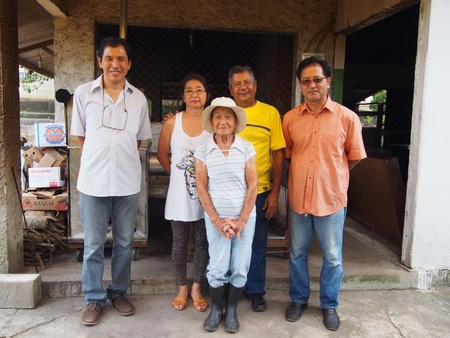
[Nikkei Shimbun: Gossip]
Makiuchi Toshio provided technical support to Shimada Ume, who set out to protect the black tea industry in Registro. Ume had hoped to make use of the tea fields, and by chance, Makiuchi passed by the Shimada family home and asked, "Whose tea fields is this?", which is how the two became acquainted. Shimada's father was also involved in the tea industry, so he loves black tea and even owns his own tea-making machine. Imazato Disney is full of gratitude, saying, "There are no coincidences. It was God's guidance."
* * * * *
The Registro tea factory "Amaya", which launched a new brand of black tea earlier, has been selling green tea for the past two years. "Green tea sells in Brazil, so we have to develop it somehow", they thought, and started production using the facilities for black tea. A 100 gram pack of Amaya tea costs 6 reais, while green tea costs 7 reais, and both are on sale at Japanese restaurants "Maruumi" and "Azukiya" in the Liberdade district of Sao Paulo. They are also reasonably priced, so why not buy them as souvenirs to take back to Japan?
*This article is reprinted from the Nikkei Shimbun (published on April 8, 2015).
© 2015 Asami Kojima; Nikkey Shimbun


